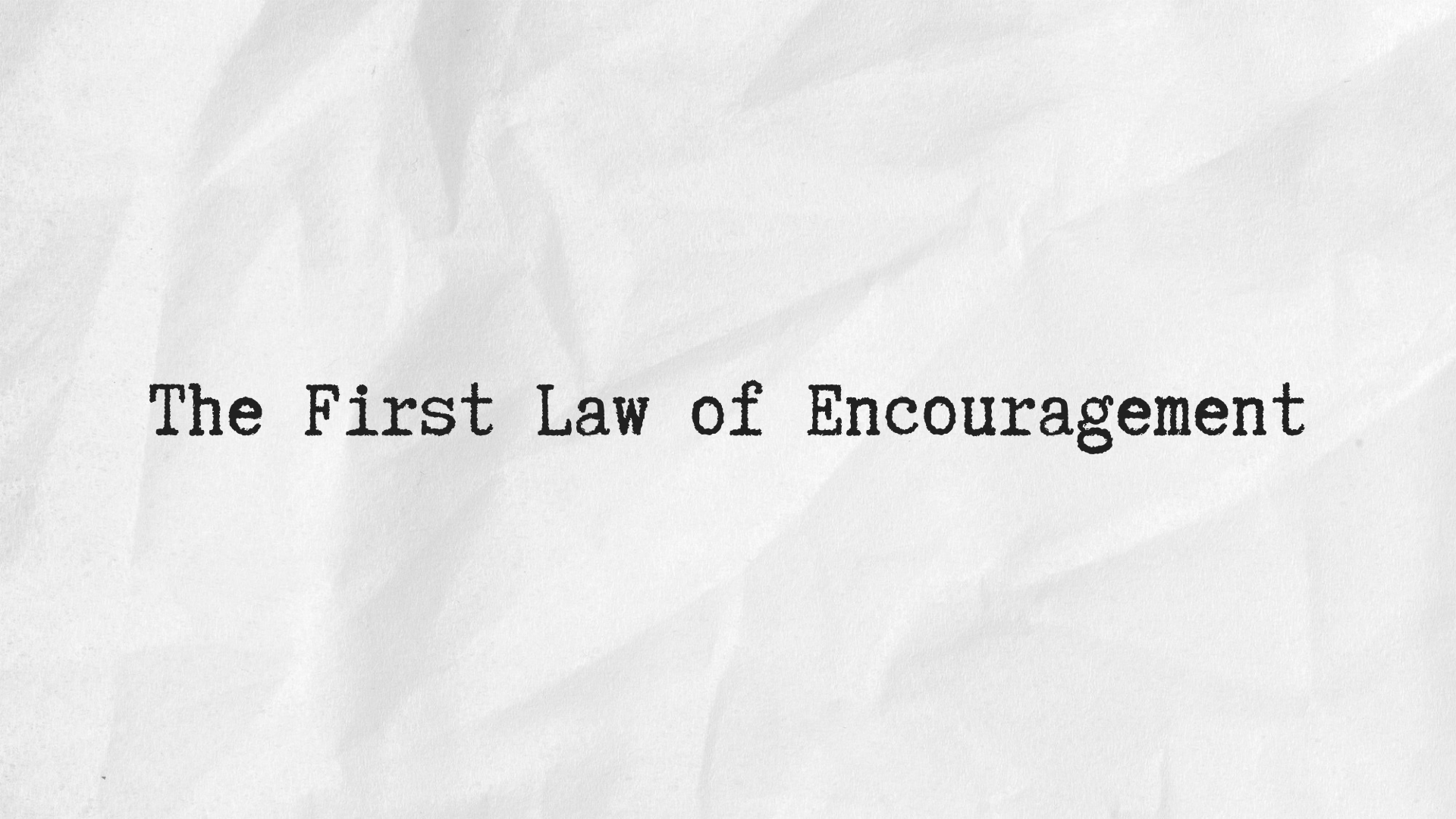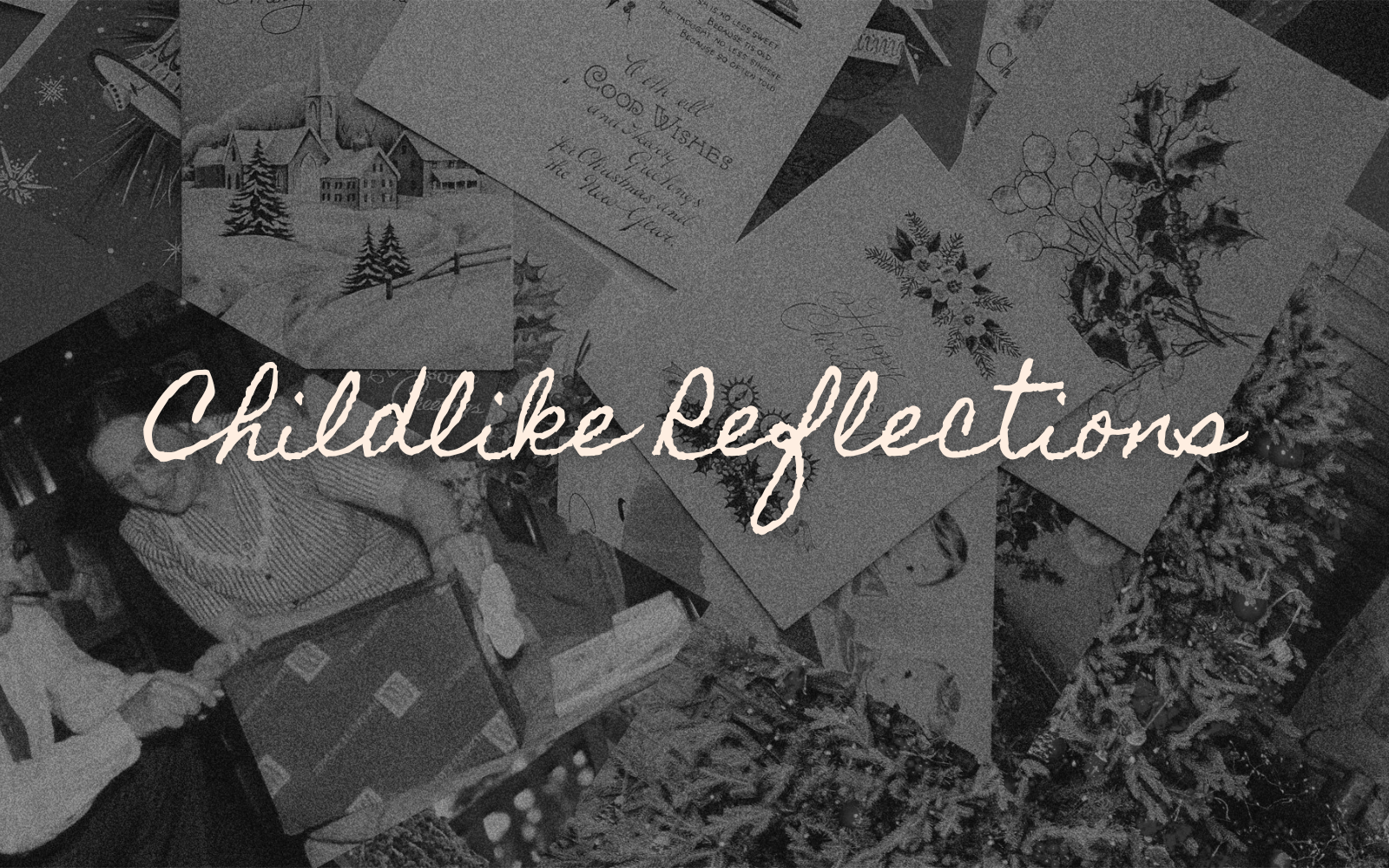My Boring Bible (part 3)
My Boring Bible (part 3) - Check Your Understanding
In our previous two blogs, we considered the possibility that if the Bible feels boring, then something is wrong with us – we are the problem. If God’s word really is God’s word, it simply cannot be boring. It’s just not possible. Therefore, if our experience of the Bible is one of detachment and boredom, something has gone wrong, just not the Bible. In my first two blogs, I argued how our unhealthy motives and unfair expectations can actually derail our reading of the Bible and rob us of experiencing the life the Bible wants to introduce us to.
In today’s blog, we’re going to consider a third possibility: our understanding.
Something we’ve mentioned multiple times before and we’ll keep mentioning again and again is that the Bible was written for us, but it was not written to us. In other words, yes, the Bible is God’s word, but God’s Word didn’t drop down out of the sky, independent from any particular culture and content. God’s word was written by human authors and when they wrote, they weren’t thinking about 21st century, skinny jeans wearing (sorry Gen-Z), latte sipping, smart phones using human beings living in the United States of America.
The Biblical authors wrote in a different world, to a different world, with a specific world in mind, but through the inspiration of the Holy Spirit, the words they wrote then continue to exist in such a way that God’s Word is for all people, at all times, in all places. Even though the world in which they wrote is very different from our own, because God is the author behind the authors, the Bible is absolutely written for us.
Why does recognizing this matter? It means there is a high probability that there will be times when something in the Bible is going to feel boring to us, not because it is boring, but because we don’t have the cultural understanding to appreciate what has been written.
Because of the time and cultural gulf between our reading today and the actual writing of the scriptures, additional work will be required of us in order to appreciate and value some of the things the Bible cares about. Just because a text seems unimportant to us doesn’t mean it is unimportant – it simply means we don’t yet have the understanding necessary to celebrate the original value system at work in what we’re reading.
Let me give you an example from everyday life. The first time I ever had dinner with my wife’s family, I was not prepared for how they pray their dinner prayers. You see, my wife’s family loves to sing. In fact, they love to sing so much that they often sing the prayer over their meal. Imagine my surprise when we close our eyes to pray and suddenly, a chorus of voices breakout in a multilayered, harmonized prayer-song! My family does not sing their dinner blessings (to be fair, most don’t!), so I was totally unprepared for this moment.
Was it weird? Yes, yes it was.
Did it catch me off guard? It absolutely did.
Did I appreciate or understand what was happening in the moment? Not exactly.
As an outsider with limited knowledge of her family and their history, I simply could not appreciate the fullness of that moment. However, as I’ve learned more about my wife’s family, the movies and television shows they watched and grew up with, the stories that have shaped them, and how her family’s deep love of music stretches back generations, what originally felt weird and disconnecting now feels rich, beautiful, and compelling.
Taking this a bit further, my wife and I were born just one year apart, in the same country, went to the same college, have great families, both love Jesus deeply and on top of all our other shared traits, this year marks our 15th wedding anniversary. And yet, despite all our commonalities and 15 years of shared life together, we’re still very different people who don’t always fully understand each other.
Think about that. If two people born in the same country, around the same time, and have spent the last 15 years married together can still experience places in our marriage where we don’t fully understand each other, how much more of an understanding gap should we expect to find when reading a book written thousands of years before we were born, in a part of the world totally foreign to our own?
But here’s the good news: I didn’t marry my wife because I knew everything there was to know about her. I married my wife because I knew enough to know that I wanted to spend the rest of my life getting to know the rest of who she is. Similarly, we don’t read the Bible because we know everything there is to know about it – we keep reading it because we know enough to know that everything we need to know for life and godliness starts with it (2 Peter 1:3).
The bottom line is every lack of understanding we experience in the Bible, is an opportunity to grow. Every time we come across a passage of scripture that we find boring, strange, or confusing, is an invitation to better understand the narrative backstory of scripture. When we come across something in the Bible that we find boring, confusing, or even off-putting, this ought to be an immediate clue that there is something at work and in play here that we simply do not understand.
Don’t assume that because it doesn’t matter or make sense to you that it doesn’t matter or make sense at all. You and I are not the ultimate authority when it comes to God’s word – we’ll leave that position to God. Instead, take that boredom or lack of clarity as a sign that there is a disconnect between your world and the world of the Bible and therefore there is an invitation for you to step beyond your world and into the world of the Bible.
So how do you do that exactly? There’s a saying that says, “You don’t know what you don’t know.” Or to put it more plainly, there are going to be times when you need help reading the Bible.
Here are a few tips for helping you grow in understanding and beyond boredom with the Bible:
· Read it with others. Get in a small group or Bible study. Do a Bible reading plan with someone. Need help finding one? Check these out here.
· Try listening to someone else read it. I can’t tell you how many times I’ve heard the Bible differently simply by hearing someone read it rather than reading it myself. There’s a great app called Dwell you can check out here https://dwellapp.io. I’ve literally been driving around listening to the book of Nehemiah lately and have been loving it!
· Get a good commentary. Commentaries aren’t perfect and without error – every commentary is an interpretation of what that person thinks the Bible means. Read them, just hold what they say loosely. The goal of a commentary isn’t to tell you exactly what to think about a text, but to help you start thinking about the text differently. Personally, some of the names of commentators I use and find helpful are NT Wright, Walter Brueggemann, Craig Keener, Sandra Richter, David deSilva, and John Walton.
· If you are the kind of person who really gets hung up on specific parts of the Bible and then find yourself discouraged, you may try using something I call the “Connection Grid”. Too often we get so hung up on one area of the text that we end up missing or overlooking other areas of the verses we’re reading. Instead, you can connect with the text in a variety of areas. Look for where you were:
o Comforted (I felt God’s presence here)
o Confused (I need to do some research on this specific area)
o Convicted (This part stepped on my toes and challenged an area of my life)
o Commissioned (Because of what I read, I feel I need to…)
The Bible may not have been written to us, but it was absolutely written for us, and the more we take the time to grow in our understanding of God’s word, the more exciting God’s word becomes. We’ve got one more blog in this series so stay tuned, tomorrow we’ll address our final area of interest to keep in check: our biases.
Sunday Morning Service Times:
9:00 AM Traditional
10:30 AM Contemporary
About:
Here at Deer Lake, we want to be the church IN the Community, FOR the Community to the glory of God and for the sake of the world.








